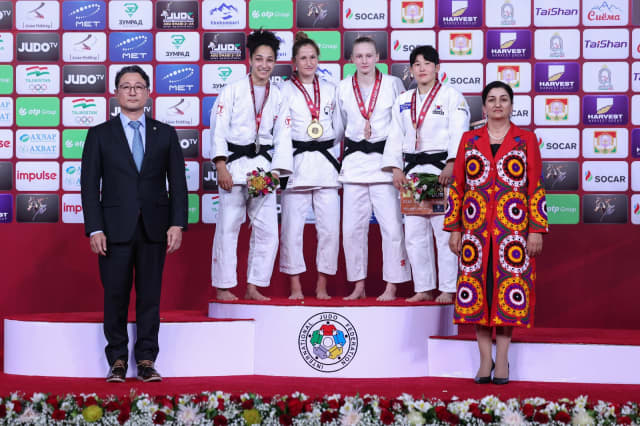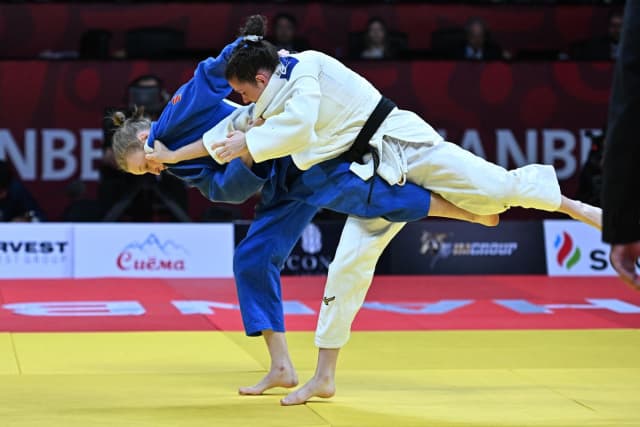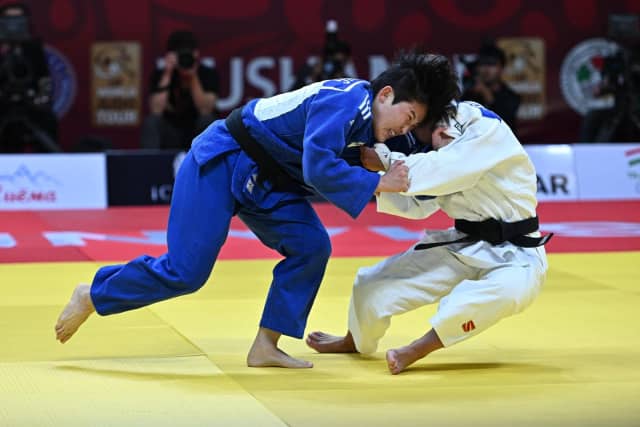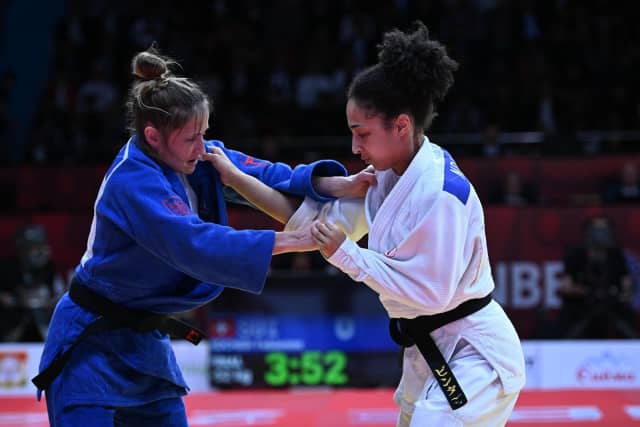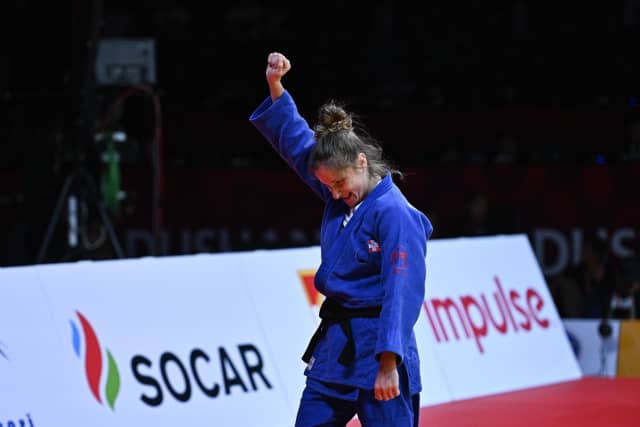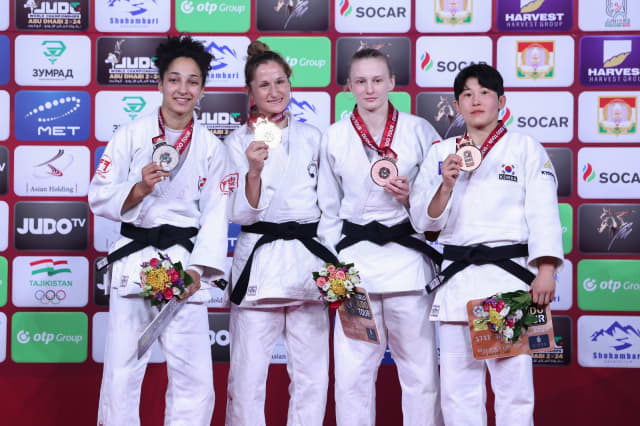Binta Ndiaye, currently one place outside direct qualification, is only 19. She has two world medals from the junior level but has yet to break into the podia finishes at the grand slam level. She took bronze in Linz this year, strengthening her Olympic qualification campaign but today’s medal will boost her chances greatly.
The young Swiss fighter held Martinez (MEX) for ippon, threw Juraev (UZB) with osoto-gaeshi and then held her to advance to a quarter-final against number one seed Mascha Ballhaus (GER) who she defeated by waza-ari, countering the German’s osoto-gari attempt.
In the second quarter, Delgado (USA) was pushed out by Jung (KOR) In the bottom half of the contest sheet, who took great energy from that round two victory and went all the way to the semi-final. Ndiaye then took the reins.
On the bottom half of the draw Mammadaliyeva (AZE) began well, inviting her team to believe she would obey her seeding but mistakes in tne quarter-final cost her dearly and it was Borisova (AIN) who reached the semi-final to face the other Swiss athlete in the category.
Fabienne Kocher (SUI) notched up two waza-ari scores against Bayanmunkh (MGL) in round one before doing the same to Puljiz (CRO), favouring ura-nage, catching it from different angles and always at great speed. She then passed Asvesta (CYP) in a tactical contest ahead of defeating the neutral athlete in the semi-final.

The first bronze medal would be taken home by either Ballhaus or Borisova (AIN). Sometimes a mistake is all another athlete needs to take an opportunity to claim victory and here it was a mistake from the German that gave Borisova a split-second to turn across the front of a failed attack to throw and hold to finish the fight. Borisova takes bronze.
The second bronze medal contest was an interesting and rarely seen match-up in a final block between Asvesta of Cyprus and Yerin Jung of Korea, the latter with only one World Judo Tour medal on her CV, a bronze in Mongolia two years ago. Asvesta is yet to medal at this level but has been getting closer and closer, registering a 5th place at the European Championships only a week ago. Fifth was her result again in Dushanbe, falling to Jung’s well timed left ko-uchi-gari with just half a minute left on the clock. Asvesta couldn’t catch up and the bronze medal was claimed by Jung and Korea.
The final was close, as expected, but full of action. Neither athlete chose the penalty route although that penalties were their final decider. Both attacked, both looked for positive transition. In the end Kocher’s greater experience won out. Switzerland can be proud of their athletes today, both heading closer to Olympic qualification and one closing the gap on the other; it’s a positive outcome all round for Kocher and Ndiaye.
Final (-52 kg)
Bronze Medal Fights (-52 kg)
